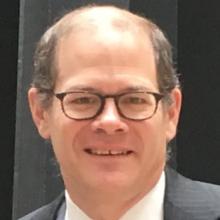Physician experts explain how they have identified behavioral health needs within their patient populations and determined if and how they could address this need within the primary care practice setting.
Experts share tools, resources and case-study like examples of how they provide mild/moderate non-pharmacological behavioral health care within the primary care setting that is both appropriate and effective for the patient.
Webinar materials
- Webinar slides (PDF)
- BHI webinar resources (PDF)
Speakers
Shruti Simha, MD, MPH, FAAP
Tim & Carolyn Rice Center for Child & Adolescent Medicine, Cone Health, Greensboro, North Carolina
Adjunct faculty, Department of Pediatrics, University of North Carolina at Chapel Hill, Chapel Hill, North Carolina
Dr. Simha is a community pediatrician who practices at Rice Center, a hospital affiliated pediatric clinic and training site for medical students and University of North Carolina pediatric residents. She enjoys working at this practice that sees a diverse group of patients and mainly serves the underserved population. Her passion is immigrant and refugee child health, and she helps coordinate the refugee clinic at Rice Center. She is involved in several advocacy projects in the community and is a member of the Council on Immigrant Child and Family Health at the American Academy of Pediatrics. She recently published an article “Preventive Care in Children and Adolescents,” for a volume on immigrant health in Primary Care: Clinic in Office Practice.
Dr. Simha works in close collaboration with behavioral health clinicians, as Rice Center has an integrated behavior health model. She believes that this model has facilitated better care for her patients and helped provide comprehensive services.
Jeffrey R. Jaeger, MD
Professor of clinical medicine, Raymond and Ruth Perelman School of Medicine at the University of Philadelphia, Pennsylvania
Dr. Jaeger is a professor of clinical medicine at the University of Pennsylvania, where he is a senior fellow at the Leonard David Institute of Health Economics. As a primary care physician at Penn Internal Medicine University City, he sees patients, supervises students and residents, and manages the practice’s Medication for Opioid Use Disorder (MOUD) program. He served as the lead physician for his practice from 2016-2020, and is lead physician for the Commonwealth of Pennsylvania’s Regional Response Health Collaboration Program.
Dr. Jaeger has been involved in advocacy for topics including domestic violence, graduate medical education financing, and competency-based resident education. His current policy advocacy focuses on opioid use and access to MOUD. He is a founding member of Penn’s Center for Addiction Medicine and Policy. He is board certified in internal medicine. He has been a member of the American College of Physicians since 1995 and the Society of General Internal Medicine since 1997.
Learn more
Explore the AMA STEPS Forward® Innovation Academy on-demand library of webinars on physician burnout, digital health, private practice, BHI and more.
988 Suicide & Crisis Lifeline
With an increased number of people reporting worsening mental health in recent years, it is imperative that people are aware of the 988 Suicide & Crisis Lifeline (formerly known as the National Suicide Prevention Lifeline) telephone program.
People experiencing a suicidal, substance use, and/or mental health crisis, or any other kind of emotional distress can call, chat or text 988, and speak to trained crisis counselors. The national hotline is available 24 hours a day, 7 days a week.
The previous National Suicide Prevention Lifeline phone number (1-800-273-8255) will continue to be operational and route calls to 988 indefinitely.
Disclaimer: The viewpoints expressed in this video are those of the participants and/or do not necessarily reflect the views and policies of the AMA.





